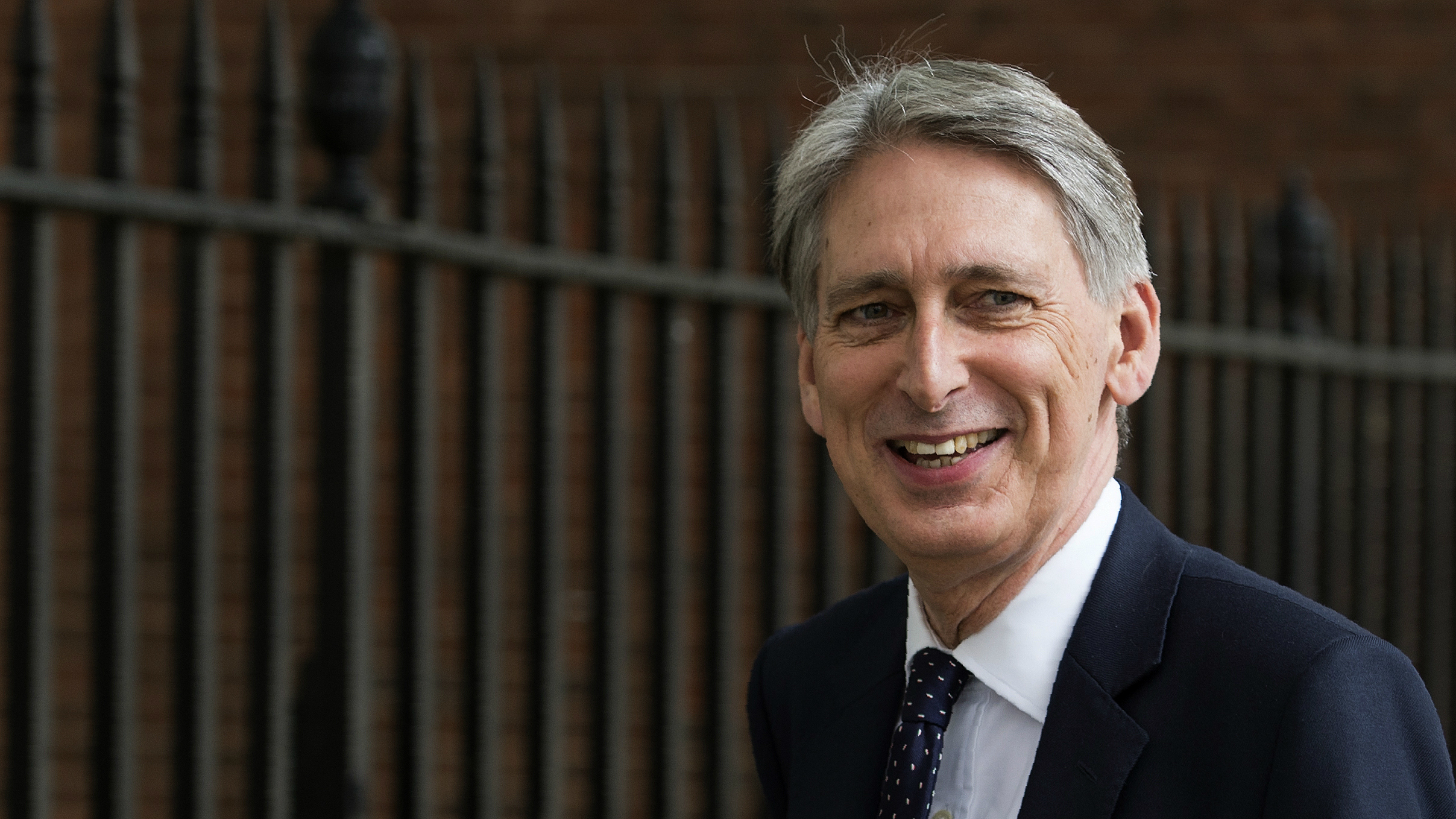UK (finally) on track to meet borrowing target
Better-than-expected tax receipts boosts government coffers

A free daily email with the biggest news stories of the day – and the best features from TheWeek.com
You are now subscribed
Your newsletter sign-up was successful
It is not a headline that followers of UK economic trends will be accustomed to reading, but the UK is on track to meet its borrowing targets.
In fact, after the Office for National Statistics forecast a drop in borrowing in December and revised down the figure for April to November, it is possible the government may beat its targets for the financial year.Last month, the government spent £6.9bn more than it collected in tax, meaning the shortfall was £400m smaller than December 2015, says the BBC.
Meanwhile, for the eight months to the end of November, the deficit was revised lower by £2.6bn, "mostly due to tax receipts being higher than estimated", says the Financial Times.
The Week
Escape your echo chamber. Get the facts behind the news, plus analysis from multiple perspectives.

Sign up for The Week's Free Newsletters
From our morning news briefing to a weekly Good News Newsletter, get the best of The Week delivered directly to your inbox.
From our morning news briefing to a weekly Good News Newsletter, get the best of The Week delivered directly to your inbox.
The net result is that total borrowing for the nine months to the end of December was £63.8bn, down from the £74.4bn for the same period a year earlier.
For the year as a whole, the Office for Budget Responsibility (OBR) has estimated borrowing of £68bn. January is the one month of the year when tax receipts are typically higher than spending, leaving ample headroom going into February and March.
The OBR predicts tax receipts this January will be £2.5bn better year-on-year due to an increase in the dividend tax collected with self-assessment returns during the month.
Having made a habit of missing deficit projections, the figures are good news for the government, although they're only possible because fiscal goals were relaxed at the Autumn Statement.
A free daily email with the biggest news stories of the day – and the best features from TheWeek.com
Chancellor Philip Hammond updated the government's so-called "fiscal charter" to now state that the country must run a deficit of no more than two per cent during this parliament.
His predecessor, George Osborne, had said he would return the public finances to surplus by 2019, but that goal was abandoned in the wake of the Brexit vote.
Suren Thiru, head of economics at the British Chambers of Commerce, said: "The UK's fiscal position… is likely to come under increasing pressure in the near term if UK economic growth weakens as expected."
-
 How the FCC’s ‘equal time’ rule works
How the FCC’s ‘equal time’ rule worksIn the Spotlight The law is at the heart of the Colbert-CBS conflict
-
 What is the endgame in the DHS shutdown?
What is the endgame in the DHS shutdown?Today’s Big Question Democrats want to rein in ICE’s immigration crackdown
-
 ‘Poor time management isn’t just an inconvenience’
‘Poor time management isn’t just an inconvenience’Instant Opinion Opinion, comment and editorials of the day
-
 Labour shortages: the ‘most urgent problem’ facing the UK economy right now
Labour shortages: the ‘most urgent problem’ facing the UK economy right nowSpeed Read Britain is currently in the grip of an ‘employment crisis’
-
 Will the energy war hurt Europe more than Russia?
Will the energy war hurt Europe more than Russia?Speed Read European Commission proposes a total ban on Russian oil
-
 Will Elon Musk manage to take over Twitter?
Will Elon Musk manage to take over Twitter?Speed Read The world’s richest man has launched a hostile takeover bid worth $43bn
-
 Shoppers urged not to buy into dodgy Black Friday deals
Shoppers urged not to buy into dodgy Black Friday dealsSpeed Read Consumer watchdog says better prices can be had on most of the so-called bargain offers
-
 Ryanair: readying for departure from London
Ryanair: readying for departure from LondonSpeed Read Plans to delist Ryanair from the London Stock Exchange could spell ‘another blow’ to the ‘dwindling’ London market
-
 Out of fashion: Asos ‘curse’ has struck again
Out of fashion: Asos ‘curse’ has struck againSpeed Read Share price tumbles following the departure of CEO Nick Beighton
-
 Universal Music’s blockbuster listing: don’t stop me now…
Universal Music’s blockbuster listing: don’t stop me now…Speed Read Investors are betting heavily that the ‘boom in music streaming’, which has transformed Universal’s fortunes, ‘still has a long way to go’
-
 EasyJet/Wizz: battle for air supremacy
EasyJet/Wizz: battle for air supremacySpeed Read ‘Wizz’s cheeky takeover bid will have come as a blow to the corporate ego’